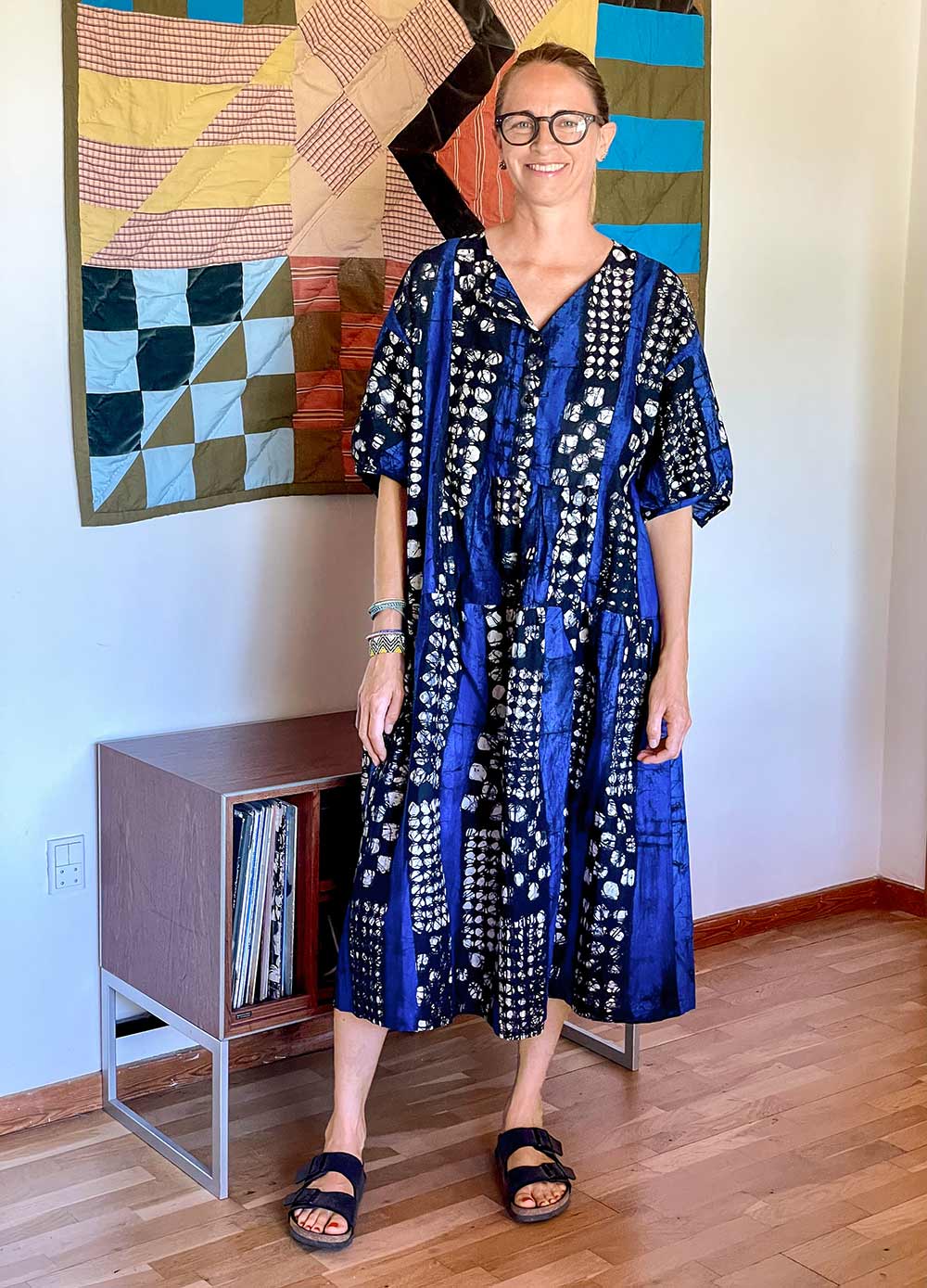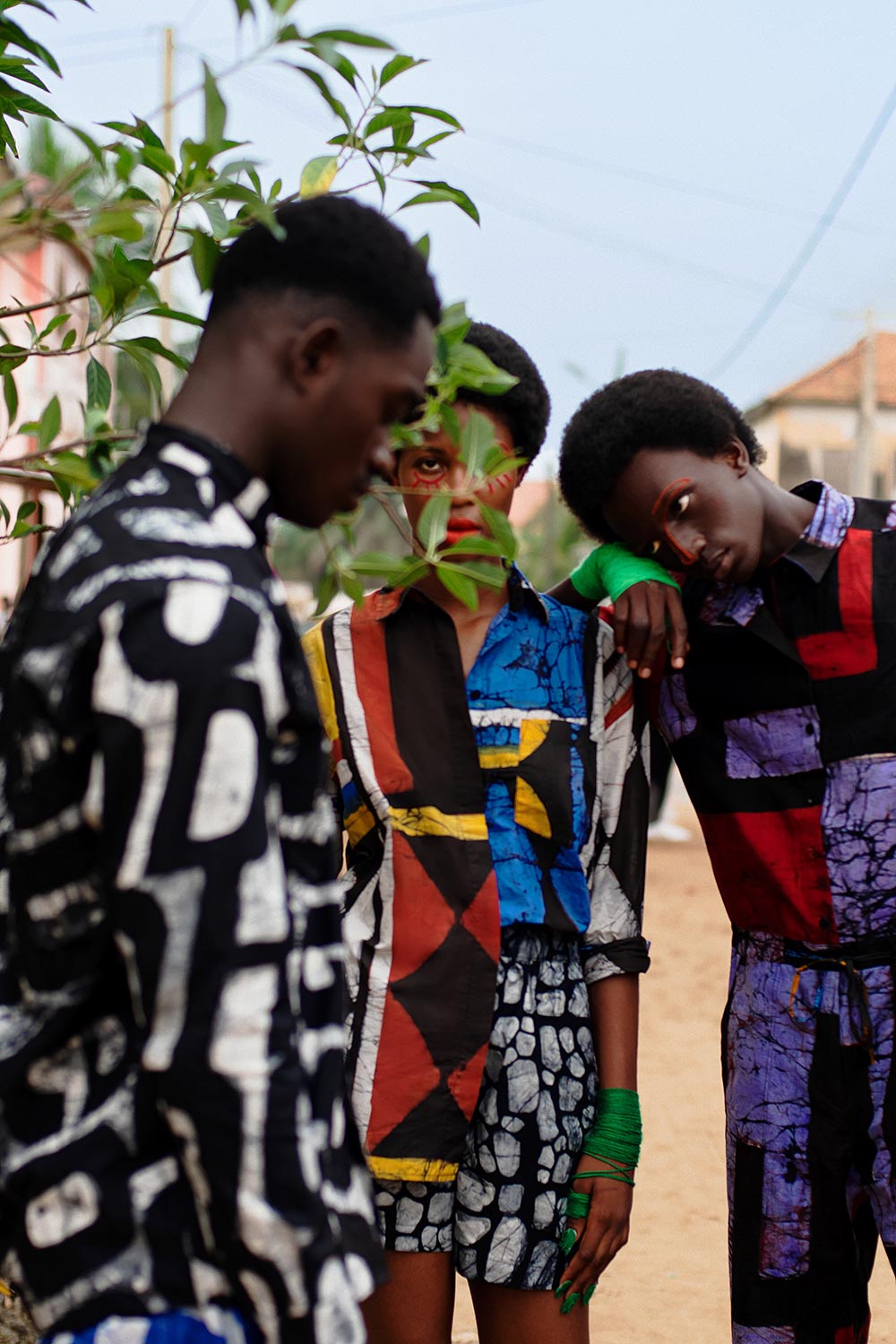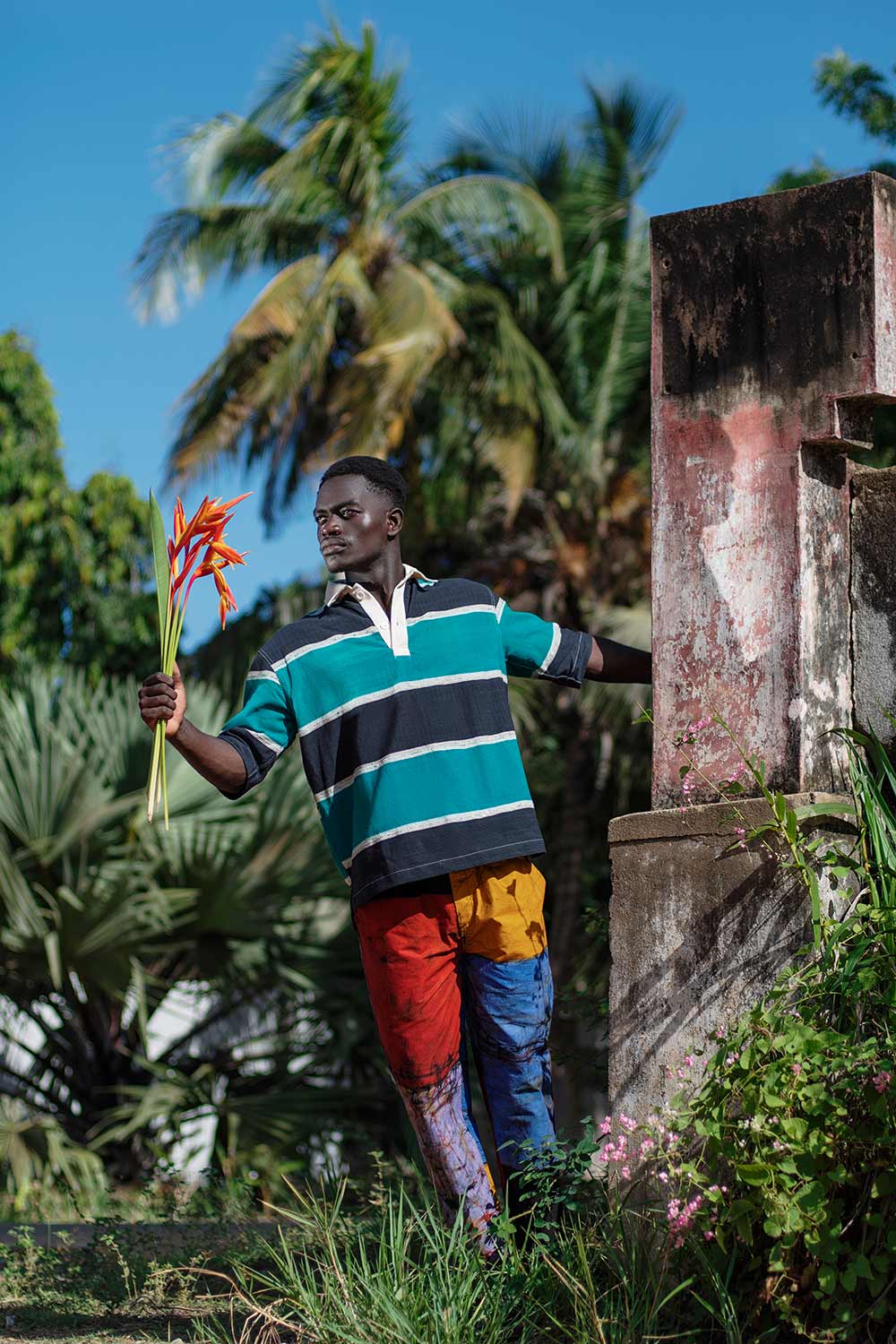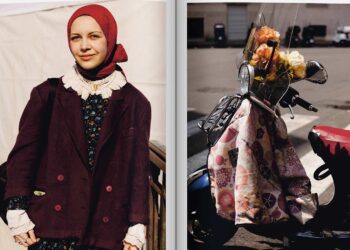It is the small fashion labels that are showing the big players how to do it right. Poplin Project is more than just fashion, as Susann Schweizer promotes traditional African craftsmanship with her label and supports local producers at the same time. The result is cool clothing that does good.
Photos: © Poplin Project
FACES: What’s wrong with the fashion industry?
Susann Schweizer: The list would be long… Due to capitalism, economic growth pressure and the globalized value chain, fashion has developed into one of the dirtiest industries, characterized by exploitation, environmental destruction and overproduction. More and more garments are being produced at ever lower prices. In recent decades, fashion trends have changed ever more rapidly in order to drive sales. The pressure on workers to produce more and at lower prices has grown, as has the pressure on consumers to follow the latest trends. Dumping prices have led to clothing no longer being valued. 30 percent of the clothes produced worldwide end up directly in the garbage.
F: Why is it only now that things are moving?
SS: The urgency of the climate catastrophe, exacerbated by the pandemic and armed conflicts that bring logistical, economic and social dependencies to light, raises social and environmental issues. Unfortunately, the countermovement is still slow to get going. It is even predicted that the peak of the fast fashion craze will not be reached for another ten years and that consumption will double again by then.
F: Shouldn’t it really be a given to produce sustainably, and what are the hurdles that exist along the way?
SS: Garment production has a very complex and opaque supply chain. This makes it difficult to control and monitor the individual stages. Political regulations are urgently and urgently needed to force business and industry to introduce and implement sustainable practices.
F: Your collections are not only inspired by Africa, they are also created there. How did you decide to have your clothing produced there and what are the advantages?
SS: Twelve years ago, I spent three months in Côte d’Ivoire for the first time for family reasons. At a time when I was working as a fashion designer in Paris and was already very frustrated with the way the fashion industry was developing. For me, the stay was like a “reset” of all my values and triggered a longing for meaning and appreciation. It was then that the idea of founding a socially committed slow culture label was born. A project, not a classic label, that promotes sustainable development with handicrafts and traditional textiles. The idea was to handcraft products that combine the creativity and aesthetics of different cultures with timeless design. The slow culture movement is about breaking out of the fast, complex grid of the textile industry; it is once again about diversity and uniqueness and is the antithesis to the mass production of fast fashion.
F: What is actually behind the label name Poplin Project?
SS: Poplin is the name of the classic cotton fabric traditionally used for shirts and blouses. And “Project” because the label is a flexible structure that can develop and change.
“The peak of the fast fashion craze will not be reached for another ten years.”
F: How many people work for and with you?
SS: In Switzerland we are 1.5 people, in Côte d’Ivoire and more recently Burkina Faso we are now 16 people.
F: How do you describe Africa?
SS: I find West Africa to be grounding, warm (not only climatically), spontaneous, chaotic, rich, colorful, lively and patient.
F: What are the biggest problems currently facing the African continent and how can we help?
SS: Post-colonial repercussions, effects of climate change, lack of social structures and health services, poor education, corruption, lack of economic development, lack of governance of natural resources. Western society must stop imposing our values on other cultures. Instead, we should negotiate at eye level and with respect and be open. It would also do us good to listen and learn.
F: You also support various projects with your income.
SS : I regularly supported a women’s cooperative of charcoal producers. But I have also learned to question my idea of aid and instead work together with the artisans to create sustainable support in the form of education and infrastructure. For example, we hold workshops to work with natural colors again, something that everyone can benefit from.
F: What craftsmanship that you’ve been able to learn about as part of your collections impresses you the most?
SS: In general, I am deeply impressed by all the craftsmanship and artistic skills. Craftsmanship and its traditions are a valuable cultural heritage that must be preserved. If more artisanal practices are used again in the production of clothing, attitudes towards and appreciation of clothing will also increase.
F: How difficult do you find it as a fashion label in Switzerland?
SS: The fashion labels lack state support, both in terms of ideas, institutions and funding.
F: What could this support look like?
SS: Switzerland now has the opportunity to take an important step forward in the area of textile sustainability and play a pioneering role. It is time for a sustainability center to be established in Switzerland (as has recently been the case in other European cities), where the public and fashion labels can be sensitized, educated and supported on issues of textile sustainability and consumption.
“30 percent of the clothes produced worldwide end up directly in the trash.”
F: How do you stand up to the big players in the industry, and how do you score points with consumers in comparison?
SS: In fact, it is the small brands that are currently setting the bar high for sustainable practices. Small brands can control their supply chains better and communicate transparently, and their small structures make them much more flexible to make rapid changes. Poplin Project is absolutely transparent and authentic. The entire basic motivation of the brand is personal – it’s never just about business. Our printing, dyeing and production processes also make each item of clothing unique and handmade, so to speak. This gives our customers a personal connection that is valuable.
F: Looking back, would you do everything the same way again?
SS: Looking back, I wish I had started the project with a business partner.
F: What sustainability lie drives you up the wall?
SS: When consumers are deceived with greenwashing communication and when the recycling of plastics is presented as the solution to all problems.
F: How do you envision the fashion industry in ten years?
SS: More diverse, especially in terms of the range of clothing-related services.
F: What is your favorite place?
SS: The forest.
F: What do you reward yourself with?
SS: An evening in the hammam with friends.
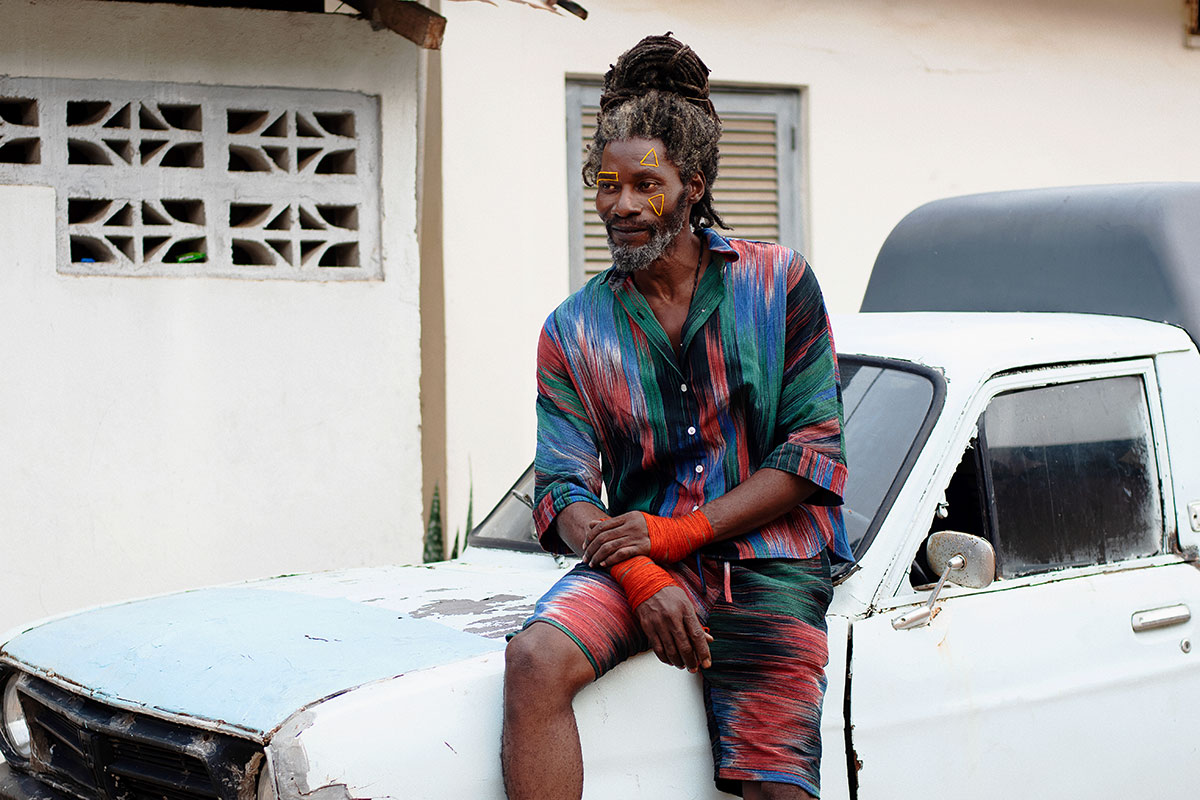
Poplin Project
When Susann Schweizer founded Poplin Project as a slow-culture label, fashion was only a secondary concern. She wants to do good and help where help is needed. It picks up on traditional African crafts and brings African textiles back into fashion, while at the same time supporting local organizations and cooperatives. The new “NEIGHBORHOOD” collection illustrates the social significance of interpersonal relationships and is an aesthetic examination of the relevance of personal contacts that has been lost in recent years. poplinproject.com
